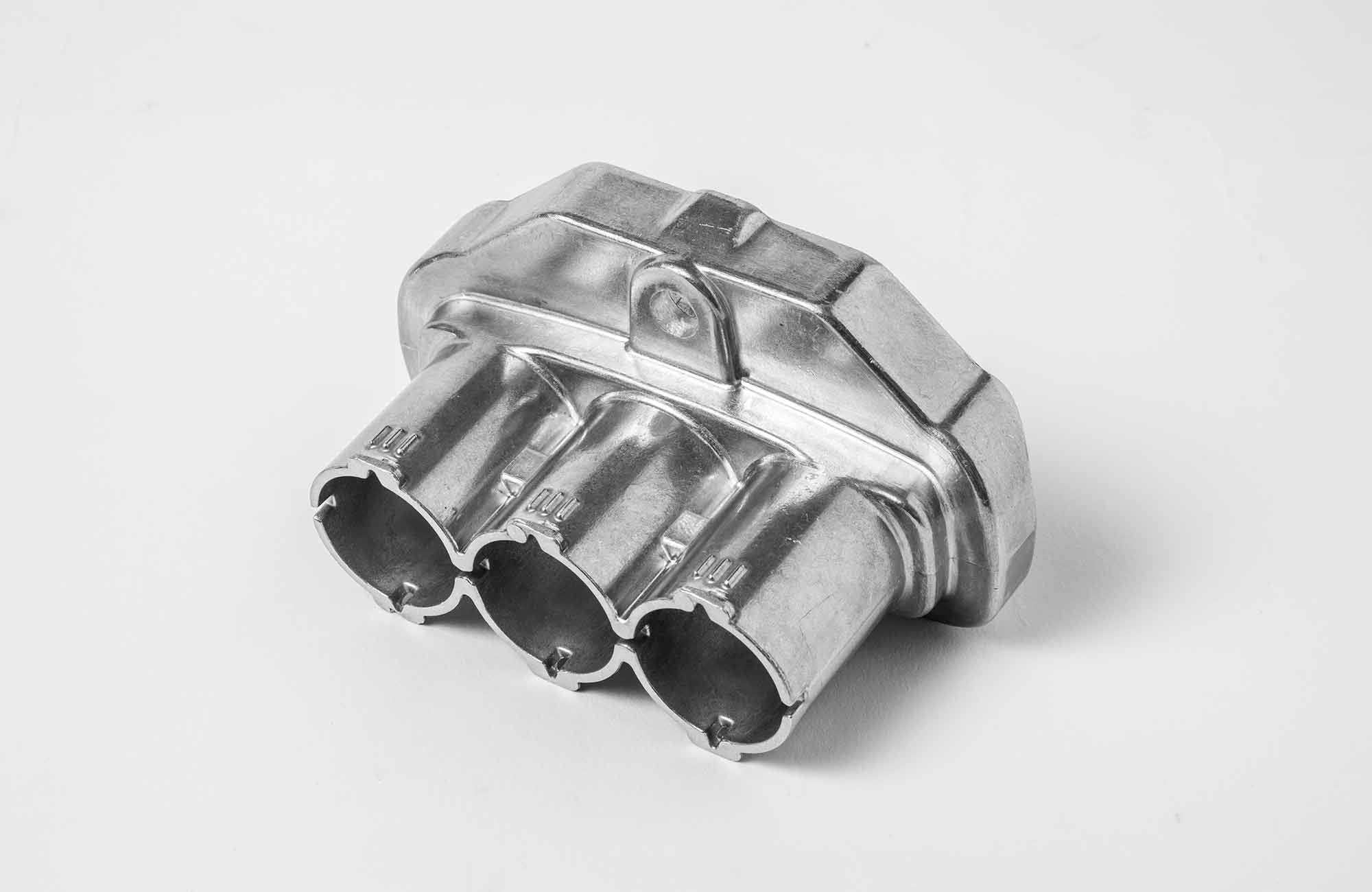Alcast Company - Truths
Alcast Company - Truths
Blog Article
The Ultimate Guide To Alcast Company
Table of ContentsExamine This Report about Alcast CompanyExcitement About Alcast CompanyThe Facts About Alcast Company UncoveredThe Facts About Alcast Company UncoveredIndicators on Alcast Company You Should KnowAlcast Company Things To Know Before You Get This
Chemical Contrast of Cast Light weight aluminum Alloys Silicon promotes castability by minimizing the alloy's melting temperature level and boosting fluidness during spreading. In addition, silicon adds to the alloy's stamina and put on resistance, making it important in applications where toughness is important, such as vehicle parts and engine parts.It also improves the machinability of the alloy, making it much easier to refine right into finished items. In this way, iron contributes to the overall workability of aluminum alloys. Copper increases electric conductivity, making it beneficial in electrical applications. It also enhances corrosion resistance and contributes to the alloy's general stamina.
Manganese adds to the stamina of light weight aluminum alloys and enhances workability (aluminum foundry). It is frequently utilized in functioned aluminum products like sheets, extrusions, and accounts. The presence of manganese help in the alloy's formability and resistance to cracking throughout fabrication procedures. Magnesium is a lightweight aspect that gives strength and effect resistance to light weight aluminum alloys.
The smart Trick of Alcast Company That Nobody is Discussing
It permits the manufacturing of lightweight elements with outstanding mechanical homes. Zinc boosts the castability of light weight aluminum alloys and aids manage the solidification procedure throughout spreading. It enhances the alloy's stamina and solidity. It is usually found in applications where elaborate forms and fine information are needed, such as ornamental spreadings and certain vehicle parts.

The key thermal conductivity, tensile strength, yield stamina, and elongation differ. Amongst the above alloys, A356 has the highest thermal conductivity, and A380 and ADC12 have the cheapest.
The 5-Minute Rule for Alcast Company

In precision spreading, 6063 is fit for applications where elaborate geometries and top quality surface area finishes are extremely important. Examples include telecommunication units, where the alloy's exceptional formability enables sleek and cosmetically pleasing styles while preserving architectural honesty. Likewise, in the Lights Solutions industry, precision-cast 6063 elements develop stylish and effective lights components that require complex forms and excellent thermal performance.
It results in a finer surface coating and much better rust resistance in A360. The A360 exhibits superior elongation, making it excellent for facility and thin-walled parts. In accuracy spreading applications, A360 is fit for sectors such as Customer Electronic Devices, Telecommunication, and Power Devices. Its improved fluidity enables for detailed, high-precision components like smartphone casings and communication tool housings.
The Definitive Guide for Alcast Company
Its special homes make A360 a beneficial option for accuracy casting in these markets, boosting item resilience and high quality. Aluminum Castings. Aluminum alloy 380, or A380, is a widely used casting alloy with several distinct characteristics.
In precision casting, light weight aluminum 413 shines in the Consumer Electronic Devices and Power Equipment industries. This alloy's premium deterioration resistance makes it an exceptional option for outdoor applications, guaranteeing long-lasting, sturdy items in the mentioned sectors.
Alcast Company Fundamentals Explained
When you have actually decided that the light weight aluminum die casting procedure is ideal for your task, a critical next step is choosing one of the most suitable alloy. The light weight aluminum alloy you pick will substantially impact both the casting procedure and the homes of the final product. Due to this, you must make your decision meticulously and take an informed method.
Determining the most ideal aluminum alloy for your application will imply weighing a vast range of attributes. The very first category addresses alloy characteristics that impact the manufacturing process.
Not known Details About Alcast Company
The alloy you select for die casting directly impacts several facets of the spreading procedure, like how simple the alloy is to collaborate with and if it is vulnerable to casting flaws. Warm breaking, also referred to as solidification splitting, is a typical die spreading problem for aluminum alloys that can result in internal or surface-level splits or splits.
Specific aluminum alloys are more at risk to hot fracturing than others, and your option ought to consider this. One more usual issue discovered in the die spreading of aluminum is die soldering, which is when the cast adheres to the die wall surfaces and makes ejection challenging. It can harm both the actors and the die, so you must look for alloys with high anti-soldering homes.
Deterioration resistance, which is already a notable characteristic of aluminum, can vary substantially from alloy to alloy and is an important characteristic this content to take into consideration depending on the environmental conditions your product will be subjected to (Casting Foundry). Wear resistance is another home typically sought in aluminum products and can set apart some alloys
Report this page